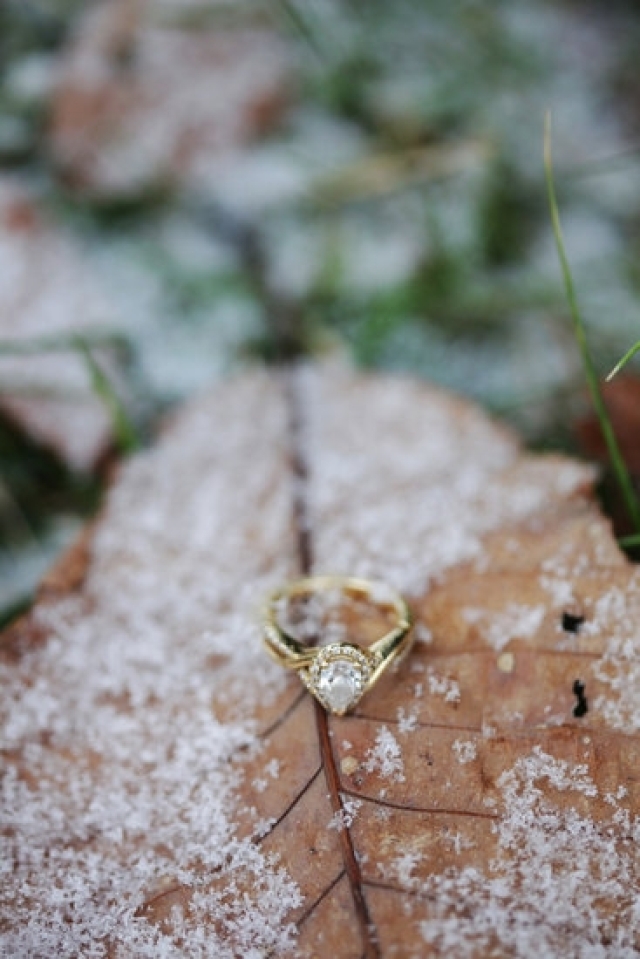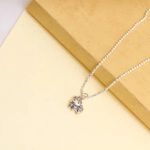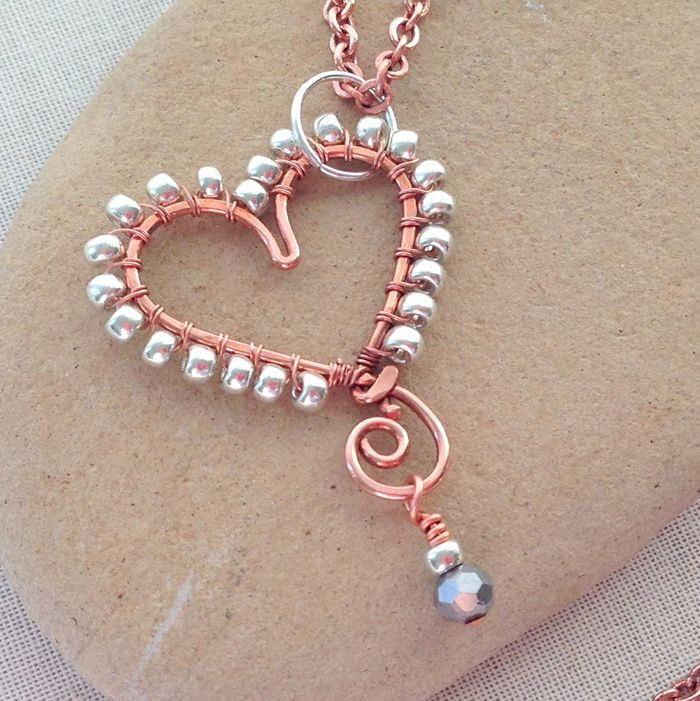The use of toothpaste to clean metal jewelry is a great way to bring back its luster and shine without breaking the bank. This is an effective and cheap method that has been around for a long time and helps you get rid of tarnish from your precious metal jewelry.
It is important to understand that not all types of toothpaste are suitable for cleaning silver or gold jewelry. The wrong type could negatively affect the metal surface, so it’s best to be aware of which type would work best for your specific item.
Types Of Toothpaste:
The two types normally used for cleaning metal surfaces are non-abrasive and abrasive toothpastes. Non-abrasive toothpastes are generally made from mild ingredients like baking soda or peroxide which can clean the metallic surface gently with minimal damage. Abrasive toothpastes contain strong detergents, such as silica, that have a stronger effect on removing stains from metals like silver and gold, but they may cause more scratches on the metal surface than non-abrasive pastes.
Cautions & Precautions:
When you start cleaning your metallic jewellery you should always wear gloves in order to protect your skin from getting affected by any chemicals present in the paste. Before applying any kind of toothpaste on your jewellery make sure it is properly dry as even drops of water can change the chemical makeup when combined with the paste, thus damaging your jewellery further.
After applying toothpaste onto your metallic jewelery , gently rub it off making sure not to scratch them too harshly as uncontrollable rubbing might end up causing serious damage to its fine finishing. Take proper care while washing off the paste too since low quality pearls or certain gemstones could get damaged if they come into contact with high sud levels produced by some kinds of toothpastes.
Different Cleaning Methods for Different Kinds of Metal Jewelry
When shopping for a cleaning product to clean metal jewelry, it’s important to understand the differences between the different types of jewelry and which cleaning products work best. Non-precious metals like aluminum, stainless steel, and copper will typically require a commercial cleaner while softer metals such as gold and silver need a gentler approach.
Toothpaste makes an excellent choice for cleaning soft jewelry like gold and silver because it is mild enough that it won’t damage delicate stones or metals. To use toothpaste to clean your jewelry, simply apply a generous amount of toothpaste onto the surface of the item with your finger or a soft cloth.
Gently rub in tight circular motions for several minutes until the majority of the dirt and grime have been removed from the item. Then rinse off with warm water and dry with a soft cloth.
Stainless steel jewelry also can be cleaned using toothpaste but should not be used on delicate pieces that contain small stones or intricate designs as it can get trapped in those areas. Instead, consider using a jeweler’s paste such as 3M Jewelry Cleaner or even WD-40 which can dissolve dirt and oils without corrosion risks.
If you are unsure about what type of cleaner to purchase, seek out advice from your friendly local jeweler for more specific instructions on how to properly clean that particular metal item.
How to Choose the Right Kind of Toothpaste for Your Metal Jewelry
If you want to keep your metal jewelry looking its best, it is essential to clean and polish it with the right products. This includes choosing the right kind of toothpaste to use on your metal jewelry.
To do this, first make sure that your metal jewelry is free from dirt and other debris. Use some warm water and a mild detergent if necessary, but don’t use any harsh chemicals or cleaners – the latter could easily damage sensitive metals like gold and silver.
Next, select the toothpaste that’s best for your particular type of metal jewelry. For pieces made from regular metals like copper, brass, aluminum or stainless steel, a non-abrasive white or gel toothpaste will do just fine. Avoid red, blue or tartar control formulas since these contain abrasive grit which can leave small scratches on softer metals such as gold and silver.
On the other hand, if you have gold or silver jewelry then you should opt for a gentle toothpaste specifically designed for cleaning precious metals. These nearly always contain calcium carbonate which helps remove tarnish without scratching the piece of jewelry too much while also delivering a light polishing effect too.
Finally, when buying toothpaste for cleaning metal jewelry look out for products marked as ‘safe’ on their labels. Doing so will aid you in avoiding any irritating ingredients such as fragrances or certain dyes which could potentially cause an allergic reaction on contact with skin. Be sure to read the label thoroughly before making your purchase and follow all instructions carefully before using them on delicate items like coins and earrings.
Which Toothpaste Is Best for Silver Jewelry
When it comes to keeping your metal jewelry sparkling clean, you may find yourself wondering what kind of toothpaste is best for silver jewelry. After all, you want to keep your precious metal pieces looking and feeling as beautiful and luxurious as the day that you bought them. Fortunately, there are some simple steps you can take to ensure that your metal jewelry stays looking its absolute best.
The basics of maintaining one’s silver jewelry starts with proper cleaning, which should be done periodically depending on how often the jewelry is worn. As a general rule of thumb, it’s recommended that silver jewelry is cleaned once every two weeks to ensure its shine remains vibrant and unmarred.
When it comes to cleaning silver jewelry, using regular toothpaste is definitely not the ideal choice; this type of toothpaste tends to contain abrasive compounds which can scratch the delicate surface of the metal over time. However, non-abrasive brands such as a baking soda-based or natural paste will do a great job and won’t damage your beloved pieces.
To begin with, first extract a pea-sized amount of non-abrasive toothpaste onto a soft cloth or preferably an old but clean toothbrush that has been reserved only for the purpose of cleaning your silver jewelry. Then use gentle circular motions as you rub the cloth or brush over the piece; ideally focusing on any areas that share visibility-for example any with filigree detailed or engravings in it.
Finally rinse off the paste with plenty of clean running water; making sure there are no remains left behind before drying off thoroughly with paper towel or yet another lint-free cloth and finally buffing lightly with a polishing cloth which gives an extra gleam.
Which Toothpaste Is Best for Gold Jewelry
When it comes to finding the best toothpaste for cleaning metal or gold jewelry, there are a few factors to consider. Firstly, people should ensure that they purchase an all-natural toothpaste; this is because artificial agents found in some commercial toothpastes can damage delicate metals like gold. Natural toothpastes contain baking soda or other fine abrasives which act to remove dirt and tarnish from the surfaces of metal jewelry briefs.
They also contain glycerin or another wetting agent which is great for adding moisture and helping to lift dirt particles away. In addition, natural toothpastes will not cause any changes in the color of your precious pieces or further damage them through its use.
When looking for a good choice of natural toothpaste, consider brands like Tom’s, Seventh Generation, Burt’s Bees, and Desert Essence which are all kinder to surfaces than traditional formulations. All of these help to clean the item gently yet effectively with minimal effort required on your part.
Furthermore, users should keep in mind that applying too much pressure while scrubbing can cause scratches and deepen existing ones; instead lightly lather up a soft cloth or brush and use a minimal amount of pressure when rubbing.
Lastly, select a non-abrasive fabric such as flannel or microfiber when wiping off any excess toothpaste and afterward rinse under warm running water (avoid using hot temperatures). Dry the piece carefully with either soft paper towels or air dry it then finish the job with a polishing solution specific to your jewelry type such as liquid silver polish for sterling silver pieces.
Overall taking extra care when selecting and using the right type of toothpaste can help safeguard your metal jewelry from any unnecessary wear and tear while keeping them sparkly clean throughout their lifespan.
Which Toothpaste Is Best for Platinum Jewelry
Using the right toothpaste is key to keeping your metal jewelry looking its best. Fortunately, many common types of jewelry can be cleaned with toothpastes. Platinum jewelry is no exception; it can be cleaned with some toothpaste. The best type of toothpaste for platinum jewelry is one that has mild abrasives such as baking soda and calcium carbonate. Any kind of fluoride-free paste will do the trick excellent results without causing damage to the delicate platinum finish.
To clean your platinum pieces, begin by dampening the jewelry in a bowl of lukewarm water and using a soft-bristled toothbrush to remove any dirt or debris stuck onto it. After all debris is removed, apply a small amount of the chosen mild abrading toothpaste on the item and swirl it in gentle circular motions with a damp cloth until you create a thick lather over the piece.
Continue scrubbing until the jewelry is free of dirt and grime before rinsing everything off under lukewarm water with your fingers or a soft brush.
Once done cleaning, use a dry cloth to pat dry any excess water from all sides of the piece before setting off any dried residue remaining on parts of the item using another soft and dry cloth.
To finish up, you may want to polish your platinum pieces for extra shine and protection against tarnish using either ordinary car wax or specific shining pastes formulated for metals instead of regular toothpastes that contain chemicals that can damage precious metals over time when left on for too long.
Furthermore, you should always store your platinum pieces away in a sealed container separately from other metals because friction between different kinds of metals can oxidize them faster than normal which would leave them weaker and more prone to scratches and breakage down the line so make sure they are sealed away properly inside their containers when not in wear.
Which Toothpaste Is Best for Gemstone Jewelry
Metal jewelry is one of the many beautiful accessories used for fashion. It adds class and elegance to any outfit, making it a great choice for all occasions. Cleaning this type of jewelry can help keep it looking sparkling and new, especially if you’re preparing it for an important event. But with so many different types of metal jewelry out there, what kind of toothpaste should be used?
For silver or gold pieces, baking soda-based toothpaste is a good choice. The tiny particles in the baking soda are perfect for scrubbing away dirt and grime build up without damaging the metal itself.
Additionally, due to its slightly acidic nature, baking soda toothpaste works wonders on tarnished metals like silver or brass – restoring them to their original shine with minimal effort. Despite being slightly abrasive, this type of toothpaste is typically safe for use on these types of metal jewelry as long as it’s not rubbed too hard against the metal surface.
When it comes to gemstone jewelry, a gentler approach must be taken when cleaning them. For example, using any type of harsh chemical products could permanently damage delicate gemstones such as opals or emeralds. A mild dish soap mixed with water makes a great substitute here; gently lather up your piece and then rinse off with clean water.
This process should remove all dirt and grime without causing harm to your stones. Alternatively, an ultra-mild baby shampoo mixed with warm water also does the trick if you’d rather not use dish soap. Whichever option you decide to go with, make sure that all residue from the cleanser is removed before storing the item away.
For both metal and gemstone pieces alike, always remember to never use anything too high pressure when cleaning them as this could cause scratches or loose parts which may be difficult to repair later on down the line. A soft cloth or brush should do just fine in most cases. With some patience and regular care maintenance using your chosen method – whichever may fit best into your lifestyle – your stunning jewelry will remain looking fabulous far into the future.
Tips for Cleaning Metal Jewelry Safely and Effectively
Cleaning metal jewelry is an important way to maintain the beauty of your favorite pieces. While jewelry cleaners are always recommended, many people find it more convenient and cost-effective to rely on common household items instead. One effective cleaning solution involves using toothpaste. This method requires a bit of know-how, so here is a helpful guide for how to clean metal jewelry with toothpaste.
First off, you’ll need to determine which type of toothpaste is best for the job. Most experts recommend a mild whitening toothpaste with abrasive ingredients such as baking soda or peroxide for metals like gold or silver that may not be able to withstand aggressive cleaners. Toothpastes with natural ingredients like peppermint, cloves or charcoal can also work wonders on certain pieces.
Once you have found the right product, apply an even layer of the paste directly onto the jewelry and use a soft cloth like cotton or chamois to work it in. It is essential that you move in small circles and make sure not to scrub too hard against softer stones or intricate designs. Once finished, rinse off the paste under warm water until all residue has been removed before patting dry.
It is worth mentioning that if you have delicate pieces such as pearlsor opals that should not be exposed to liquid cleaners or toothpaste at all; special professional cleaning might be needed for these types. If your jewelry consists mostly of plastic and base metal components then there’s no need for harsh toothpaste either-mild dish soap will do just fine instead.
To keep your precious jewels sparkling for years to come, always remember never to expose them to extreme temperatures (i.e., hot tubs), and minimize their contact with other products such as lotions and perfumes as much as possible.
In addition, store each one separately in its own soft pouch so they don’t rub against each other while in storage. By doing these things you will extend the life and brilliance of your valuable heirlooms.

Welcome to my jewelry blog! My name is Sarah and I am the owner of this blog.
I love making jewelry and sharing my creations with others.
So whether you’re someone who loves wearing jewelry yourself or simply enjoys learning about it, be sure to check out my blog for insightful posts on everything related to this exciting topic!





